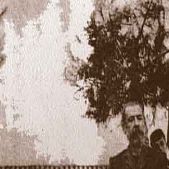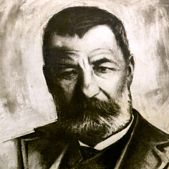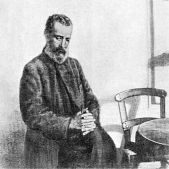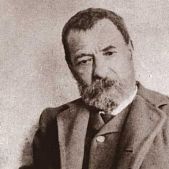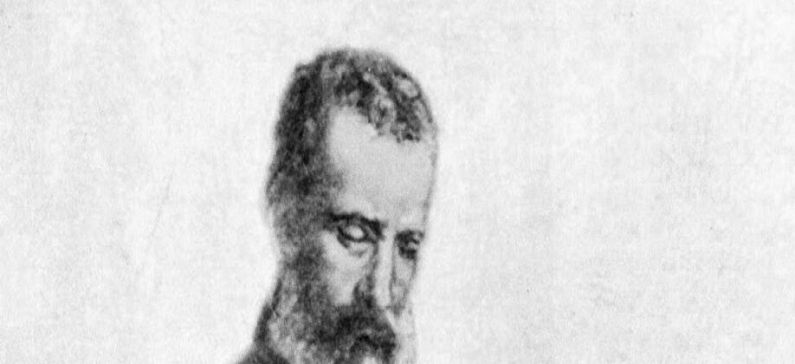
The father of modern Greek literature
Alexandros Papadiamantis is one of the greatest Greek novelist and is regarded as the father of modern Greek literature. He also worked as a journalist and as a translator.
Papadiamantis was born on 4 March 1851 on the Greek island of Skiathos. His father was a priest. His parents had nine children, two of which died at birth; he was their fourth child and eldest living son.
He had a diverse and interrupted education. He was schooled on his island until the age of eleven then he moved to Athens in order to complete his high school studies. In 1874, he went at the Philosophical School of the University of Athens. He attended the University for two years but he never received his degree. It was during this period that his cousin, Alexandros Moraitidis, introduced him into various journalistic circles.
Papadiamantis started to work as a journalist in several newspapers and magazines. Papadiamandis’s first novel, entitled “The Migrant”, was printed in instalments in the newspaper Neologos, in 1879. In 1887, his first story titled “The Christmas Loaf”, marking the feast and setting a pattern for his writing.
Papadiamantis’ longest works were the serialized novels “The Gypsy Girl,” “The Emigrant,” and “Merchants of Nations.” His stories provide lucid and lyrical portraits of country life in Skiathos, or urban life in the poorer neighbourhoods of Athens, with frequent flashes of deep psychological insight. Papadiamantis’ deep Christian faith, complete with the mystical feeling associated with the Orthodox Christian liturgy, suffuses many stories. Most of his work is tinged with melancholy and resonates with empathy with people’s suffering, regardless of whether they are saints or sinners, innocent or conflicted.
An example of Papadiamantis’ deep and even-handed feeling for humanity is his acknowledged masterpiece, the novella “The Murderess.” It is the story of an old woman in Skiathos, who pities families with many daughters: given their low socioeconomic status, girls could not work before marriage and they could not marry unless they provide a dowry; therefore, they were a burden and a plight to their families. After killing her own newborn granddaughter, gravelly ill with pertussis, she crosses the line from pity to what she believes is useful and appropriate action, the “mercy killing” of young girls. She kills three young girls in succession by throwing them into wells and then pretending to be trying to save them in order to justify her presence there.
Papadiamantis wrote many novels such as the “Around the Lagoon”, the “The Boundless Garden” and the “Love in the Snow”. He never married. He was a shy and retiring man, as the few extant photographs of him testify, a man seemingly not of this world despite his acute observations of it. Despite his introspective nature he had a small circle of close friends, including Pavlos Nirvanas and Yannis Vlachoyannis, well-known Athenian men of letters who on various occasions undertook the role of literary agents and helped him during hard times.
Padadiamantis died on 2 January 1911 in Skiathos from pneumonia.
TIPS...
-Papadiamantis except of his great novels he also wrote poets.
-The story of “The Poor Saint,” is the closest it comes to a truly religious theme.
-Papadiamantis did not care for money, and he even asks for lower salaries if he thought they were unfairly high.
-His house in Skiathos has been turned into a museum.





